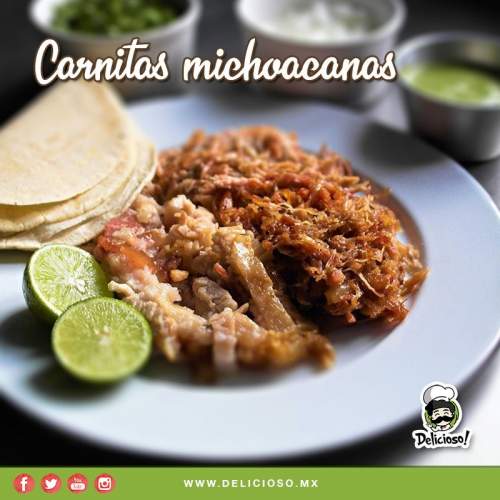Espérame tantito: los diminutivos en México/ 5 minutos de español _ Wait for me a little bit!: diminutives in México/5 minutes of Spanish - Podcast
Hola, ¿qué tal?
Buenos días, buenas
tardes o buenas noches según el lugar en donde estés o a la hora en la que nos
escuches.
Muchas gracias por estar aquí participando en
este podcast sobre el español, lengua que nos encanta y que hoy nos convoca.
Soy Eduardo Satorno profesor de español para extranjeros en SpanishUp2U y
gerente (manager) de Unique Trips tu agencia de viajes.
 |
| Tantito |
Soy Malena Algorta
profesora de español para extranjeros en Spanish in Cabo y en SpanishUp2U. Si
quieres saber más sobre tu sitio de práctica de español cliquea aquí y verás
todos los podcasts, videos y lecciones que tenemos para que domines el español.
Estamos en 5 minutos de español y este es el episodio número 105.
En estos cinco
minutitos de español a la mitad de la semana vamos a reflexionar un poquito más
sobre diminutivos. Para algunos puede ser como el dicho muy común: “No quieres
sopa, dos platos”.
 |
| No quieres sopa, dos platos |
Es un dicho
para los niños, pues a mí me encanta la sopa.
La sopita, dirás …¿qué
no te gusta a ti Eduardo? Pero a todos nos gustan los diminutivos pues son
simpáticos, bonitos, amables…
En México se
usan mucho para hacer más agradable el lenguaje, por amabilidad. Si necesitas
dar una orden se hace más cordial con una terminación ito- ita. Venga un
momentito aquí, por favor o ¿me sirves un cafecito, por favor?
El diminutivo es muy
común en todo México y es un poco complicado de escuchar para quienes, como tú,
estudian español como segunda lengua. A veces, incluso, se trata de ser tan
amables que se abusa del diminutivo, por ejemplo, se dice: por favorcito…y eso
es innecesario e incorrecto.
¿Solo se usan más
diminutivos en el español de México que en el resto de los países
hispanohablantes para suavizar el idioma o hay otros motivos?
Hay otras causas de esto
y es que, en el náhuatl, el grupo de lenguas mayoritario del México pre
hispánico, los diminutivos se usan muchísimo. Las personas en la época colonial
eran bilingües, español- náhuatl, por lo que el español en México adoptó esta
forma.
Por ejemplo, si
vienes a México casi todas las comidas se acompañan con frijolitos, las
palomitas se comen mientras miras una pelí en el cine.
Espérame tantito,
significa espera un poquito o un poco.
Tengo hambre,
¡qué raro!
Se me antojan
unas gorditas o unas carnitas…..¡qué rico!
Cuando una persona
cumple años en México no se le canta Feliz Cumpleaños, sino que cantamos: Las Mañanitas. ¿Conoces esta canción? No, no te preocupes
que no la voy a cantar….
Uff menos mal…¿Otros
ejemplos?
A veces las partes del
cuerpo se dicen con diminutivo
Me duele la
pancita…. O el dentista te dice: ahí
va el piquetito
y viene el
piquete de la anestesia…qué agradable…
 |
| Ahora un piquetito |
Todas las mujeres en
México, en las tiendas o negocios, somos señoritas, no importa el estado civil,
casada o soltera o la edad, siempre somos señoritas.
Es que, en el
español tradicional, cuando una mujer se casaba pasaba a ser señora, señorita
era solamente la mujer soltera.
Por ejemplo, mi tía,
nunca se casó y le siguen diciendo señorita, tiene 90 años….
Pero, hoy por
hoy, a una mujer que ya no es tan joven se le dice señora.
Aunque en México, como
el español es más amable, nos dicen señorita y es muy bonito.
¿Cuál es tu experiencia
con los diminutivos? ¿Los usas cuando hablas español?
Cuéntanos tus experiencias
y qué te pareció este podcast sin traducciones, nos encanta leerte.
No te preocupes
que tienes la versión en inglés si la necesitas.
¿Quieres
aprender más de los diminutivos en el español?
Para
ello, cliquea aquí
y verás como con tu sitio de español, vas a dominar esta lengua.
¿Qué tienes en
SpanishUp2U? Videos de muchos temas, podcasts, recursos, ejercicios y talleres en vivo, así, paso a paso, vas a hablar como un latinoamericano.
¡Y todo lo vas a aprender rapidito!
Podríamos decirte que con SpanishUp2U vas a mejorar
mucho tu español, pero no lo vamos a hacer, descúbrelo tú mismo.
Muchas gracias por llegar hasta aquí en el podcast. Y gracias por
escuchar, participar, comentar. Spanish
in Cabo y SpanishUp2U no serían lo mismo sin ti. Queremos que hables y
pienses en español, esa es nuestra misión.
Si te gustó, compártelo.
Nos vemos en las clases o talleres, en la experiencia de cocina y lenguas,
24/7 en SpanishUp2U o por seguro el próximo miércoles.
Hasta
pronto
Chau chau
Versión en inglés
Hello, how are you?
Good morning, good afternoon or good evening depending on where you are or what time you are listening to us.
 |
| Tantito |
Thank you very much for being here participating in this podcast about Spanish, a language that we love and that today summons us. I am Eduardo Satorno, Spanish teacher at SpanishUp2U and manager of Unique Trips, your travel agency.
I am Malena Algorta, Spanish teacher at Spanish in Cabo and at SpanishUp2U. If you want to know more about your Spanish practice site click here and you will see all the podcasts, videos and lessons we have for you to master Spanish. We are in 5 minutes of Spanish and this is episode number 105
Welcome! Thank you for being with us week after week, for your comments, for listening and participating in this family that is Spanish in Cabo. Today we are going to do a podcast without translations, OK? What do you think?
In these five minutes of Spanish in the middle of the week we are going to reflect a little bit more on diminutives. For some it may be like the very common saying: "No quieres sopa, dos platos" (You don't want soup, two bowls).
It's a saying for kids, because I love soup.
La sopita, you will say ...what don't you like Eduardo? But we all like diminutives because they are nice, pretty, kind?
In Mexico they are used a lot to make the language more pleasant, out of kindness. If you need to give an order it is made more cordial with an "ito- ita"ending. Come here for a moment, please, or can I have a cup of coffee, please?
The diminutive is very common throughout Mexico and it´s a bit complicated to hear for those who, like you, study Spanish as a second language. Sometimes people, even try to be so polite, that they abuse the diminutive, for example, they say: por favorcito...and that is unnecessary and incorrect.
Are diminutives only used more in Mexican Spanish than in the rest of the Spanish-speaking countries to soften the language or are there other reasons?
There are other causes for this, and that is that in Nahuatl, the majority language group of pre-Hispanic Mexico, diminutives are used a lot. People in colonial times were bilingual, Spanish-Nahuatl, so Spanish in Mexico adopted this form.
For example, if you come to Mexico almost every meal is accompanied with frijolitos, popcorn is eaten while watching a movie at the cinema.
Espérame tantito, means wait a little while or a little bit.
I am hungry,
how strange!
I'm craving some gorditas or carnitas....., yummy!
When a person has a birthday in Mexico we don't sing Happy Birthday, we sing Las Mañanitas: Las Mañanitas. Do you know this song? No, don't worry I won't sing it....
Uff thank goodness...Other examples?
Sometimes body parts are said with diminutives
My tummy hurts.... Or the dentist tells you: there goes the piquetito (injection prick)
and the anesthesia sting is coming...how nice...
All women in Mexico, in stores or businesses, we are ladies, no matter the marital status, married or single or age, we are always ladies. (Miss)
In traditional Spanish, when a woman got married she became a señora, señorita was only a single woman.
For example, my aunt, she never married and they still call her señorita, she is 90 years old.....
But, nowadays, a woman who is not so young is called señora.
Although in Mexico, since Spanish is more polite, they call us señorita and it's very nice.
What is your experience with diminutives and do you use them when you speak Spanish?
Tell us about your experiences and what you thought of this podcast without translations, we love to read it.
Don't worry you have the English version if you need it.
Want to learn more about diminutives in Spanish? To do so, click here and you will see how with your Spanish site, you will master this language.
What do you have in SpanishUp2U? Videos on many topics, podcasts, resources, exercises and live workshops, so, step by step, you will speak like a Latin American, and you will learn everything quickly!
We could tell you that with SpanishUp2U you are going to improve your Spanish a lot, but we won't, find out for yourself.
Thank you very much for making it this far in the podcast. And thank you for listening, participating, commenting. Spanish in Cabo and SpanishUp2U would not be the same without you. We want you to speak and think in Spanish, that's our mission.
If you liked it, share it.
See you in the classes or workshops, in the cooking and language experience, 24/7 on SpanishUp2U or for sure next Wednesday.
See you soon
Bye, bye.
Learn Spanish and its culture!
Online or here in Los Cabos
,







Comentarios
Publicar un comentario